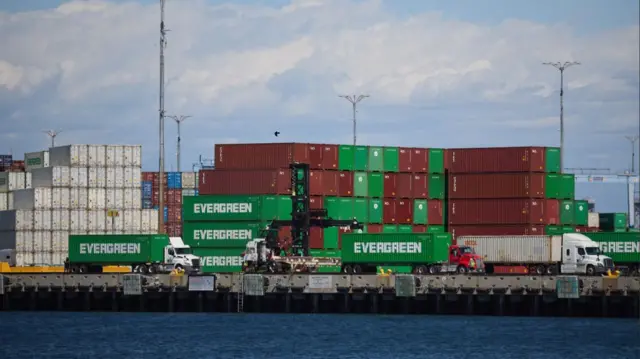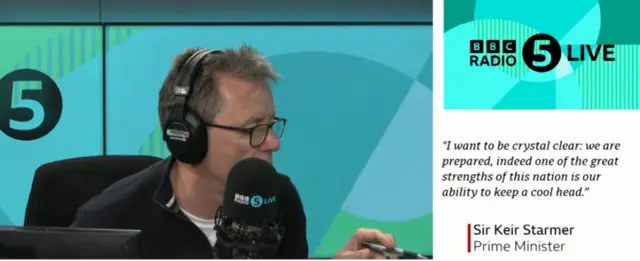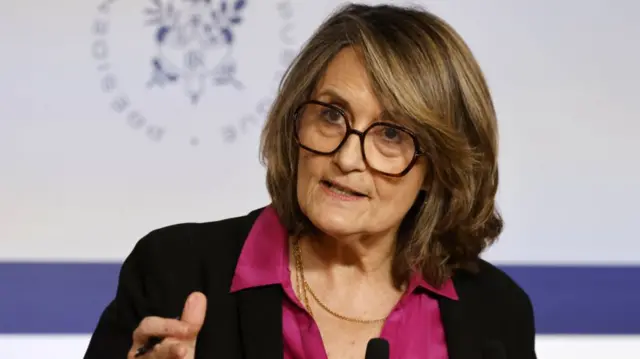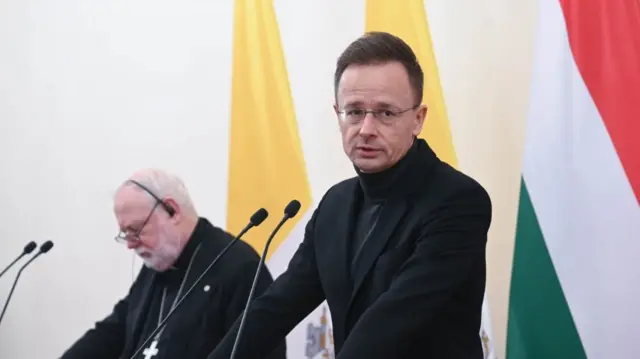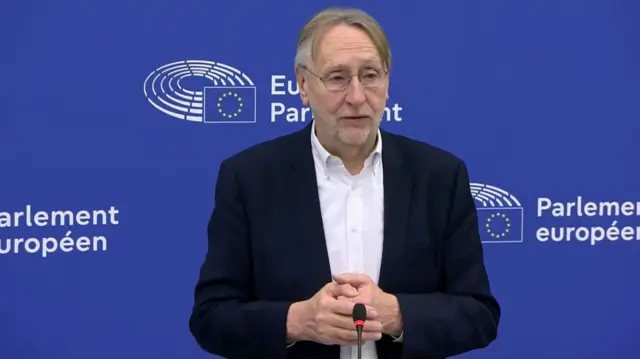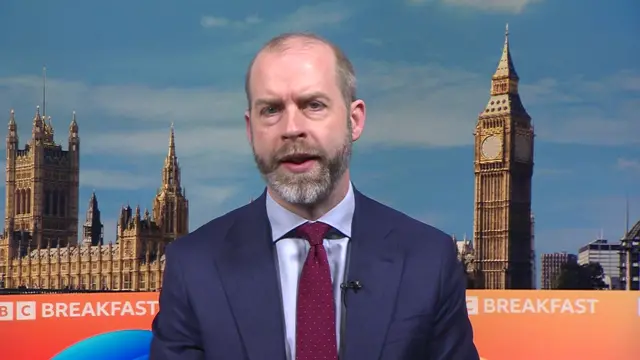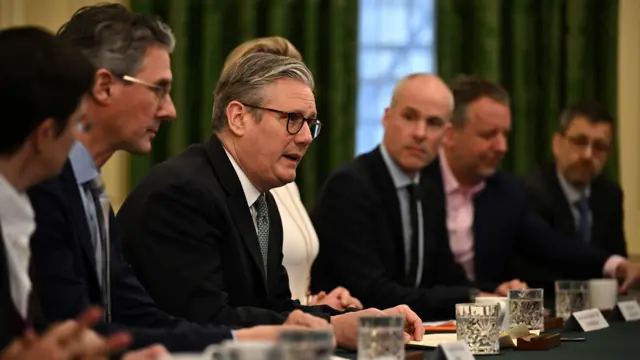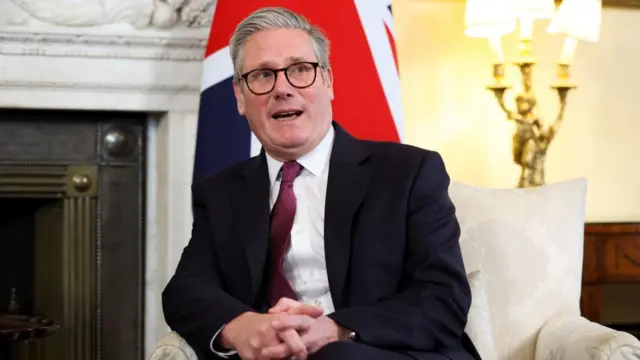Watch the moment Trump invites auto worker to voice his supportpublished at 09:50 BST 3 April
While much of the world is reacting to Trump's tariff plan – and criticising the disruption it could cause – it’s worth remembering the policy does have its supporters.
Speaking at the White House Rose Garden last night, retired auto worker Brian Pannebecker said Donald Trump's policies will bring production back to underused plants across the US.
After pointing out fellow auto workers at the tariff announcement, he added: "We support Donald Trump's policies on tariffs 100%."
You can watch his remarks – and all the cheers he gets – in the clip below.
We support Trump's tariff policies, says auto worker
